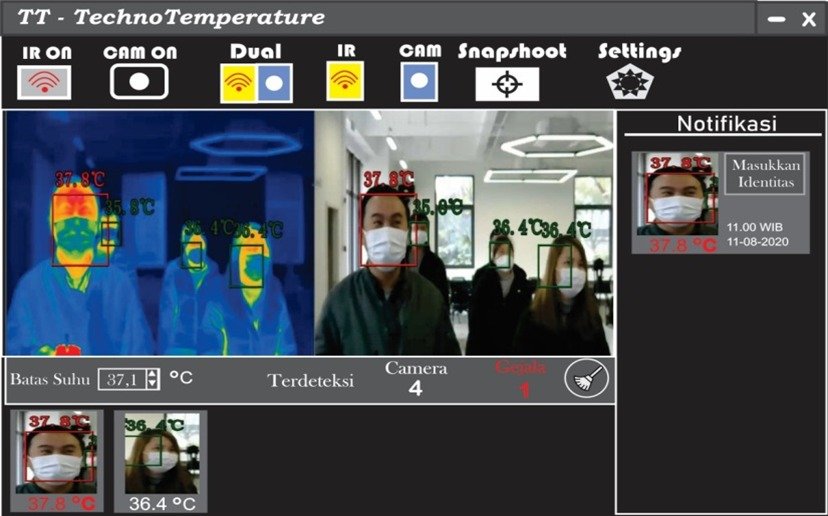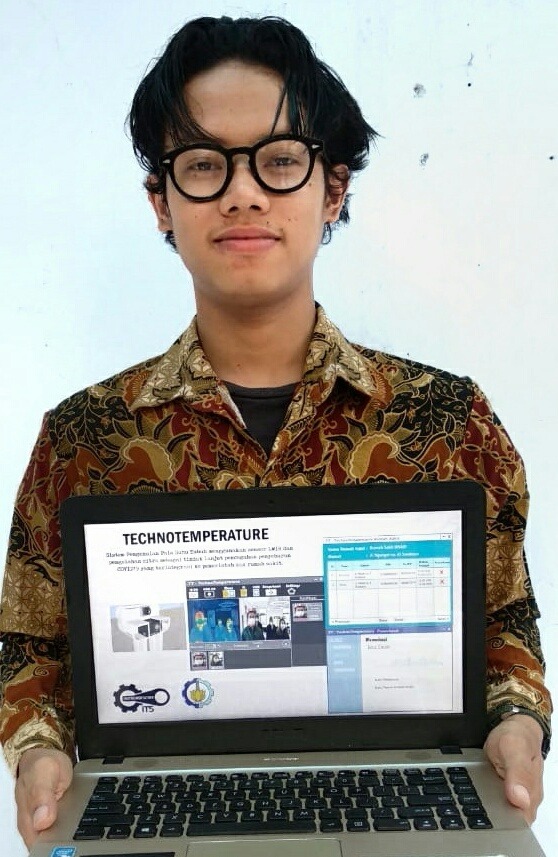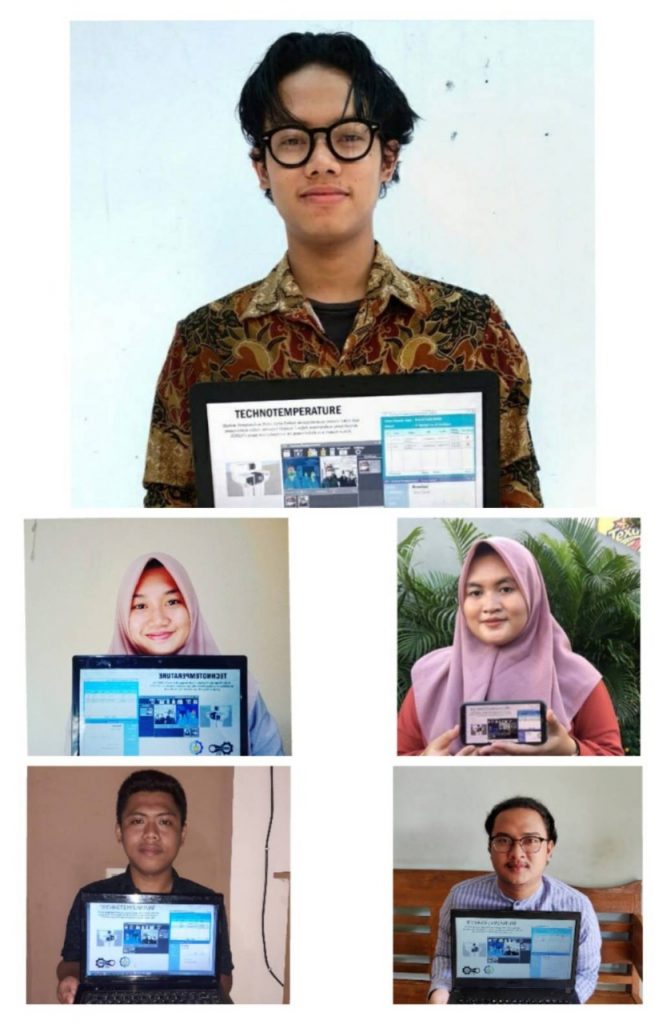Anticipate Covid-19, ITS Student Creates Integrated Temperature Detector
Faculty

TT-Techno Temperature app that can measure and record body temperature using Flir Lepton camera
ITS Campus, ITS News – to anticipate the spreading Covid-19 virus, five students of the Department of Instrumentation Engineering, the Faculty of Vocations of Institut Teknologi Sepuluh Nopember (ITS) incorporated in the Instone team created a temperature detection system that utilizes artificial intelligence on behalf of TT-Techno Temperature. This idea was taken from the weakness of existing body temperature measurements that still need the officer to check the temperature and the possibility of technical errors in the logging in the field.
Lukman Arif Hadianto, chairman of the Instone Team, explains why temperature detection protocols should use non-human technology. “The implementation by making physical contact can potentially harm the officer, besides the process of logging manually also slows down the identification of the suspect Covid-19,” he explained.
According to Lukman, TT-Techno Temperature itself is the body temperature pattern recognition system using LWIR sensor and image processing as follow-up prevention of the dissemination of Covid-19 integrated with the government and hospitals.

Lukman Arif Hadianto, chairman of Team Instone shows the innovation of TT-Techno Temperature as an integrated temperature detection system for the anticipation of Covid-19
This man who born in 1998 explained, TT-Techno Temperature using a Flir Lepton thermal camera that can measure the temperature of the human body. The camera itself implements the concept of artificial intelligence in the form of neural networking.
“For the implementation, the sensor is connected to the application that can display the user interface of the sensor reading results,” said the student of 2017.
Then, Lukman continued, there is a threshold or a specified minimum temperature. If the body temperature is detected above the threshold, the camera automatically takes a picture of a human face and sends the data to the app’s users and sounds an alarm for the alert.
Furthermore, the data will be transmitted to the central or local government and hospitals for monitoring and follow-up against whose body temperature is above the normal limit. By picking up the suspect to be checked immediately to the nearest hospital and quarantined.
“This system is very effective because the patient or human data that indicated body temperature above the normal limit can be detected quickly and in realtime,” said the student who born in Kediri.
Lukman explained, the advantage of Instone innovations is integrated with user applications, hospital applications, and government applications. It will be easier to track people detected by those sensors.
“Also, there are notifications about the delivery of information to the sensors detected in the form of measured body temperature and hospital information, to do manual checking to the hospital or self-quarantine at home,” said Lukman.

Instone team who won 1st place in LAI2-COVID19, sub competition detector with its innovation TT-Techno Temperature
The innovations that were initiated by Lukman with Ari Wardana, Noor Robbycca Rachmana, Indriani Aramintha Mentari, and Nurfani Arifudin, managed to win the first place in the innovative and inspirational application contest Covid-19 (LAI2-COVID-19) in national scale on the detector subrace conducted by ITS Directorate of Student Affairs.
Team Instone also faces obstacles like sensor selection that can detect body temperature quickly and precisely, as well as challenges where the process of discussion and workmanship is done online.
“Nevertheless, this competition is very interesting for us who can not contribute to the forefront, but can contribute to making a new tool and innovation,” he said proudly. (mia/rev/ITS Public Relations)
Latest News
-
Led by FT-EIC Student, Barunastra ITS Wins Grand Champion Title at IRC 2025
The Barunastra Team from Institut Teknologi Sepuluh Nopember (ITS) has once again carved out an impressive achievement by bringing
-
Success Story of IoT Implementation: Salt and Drinking Water Production for Gili Genting Island
Gili Genting Island, Madura, is known for its high seawater salinity, ranking second in the world after the Dead
-
Faculty of Marine Technology – ITS Conducts Collaboration Exploration with Semarang Maritime Polytechnic (PIP)
Faculty of Marine Technology - ITS Conducts Collaboration Exploration with Polytechnic of Marine Science (PIP) Semarang Date: March 11,





